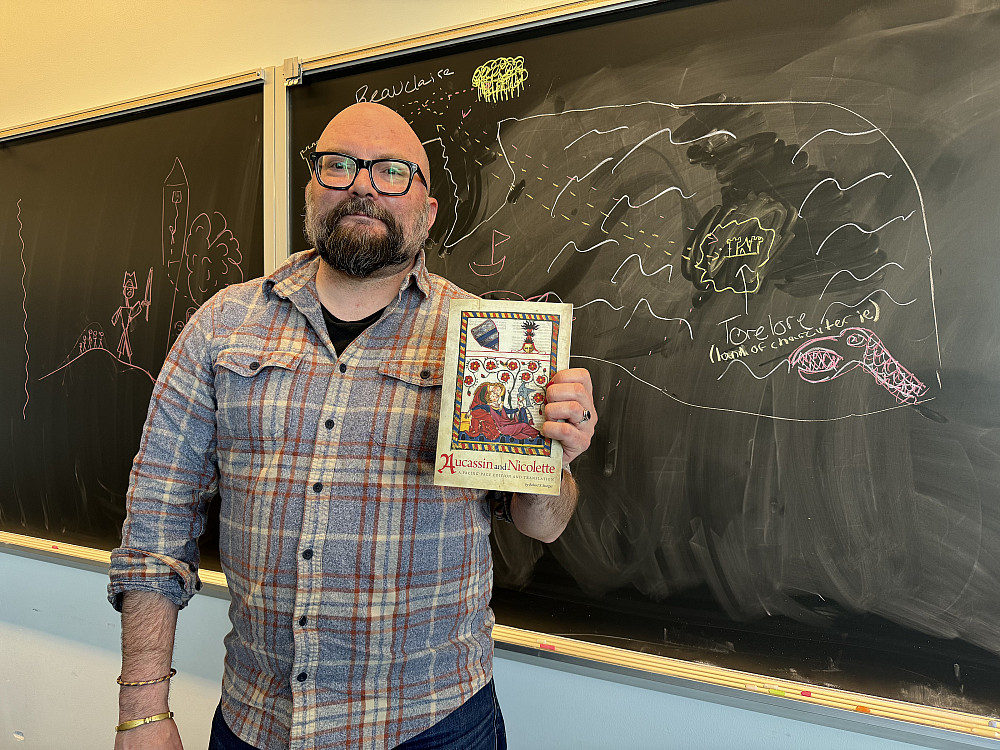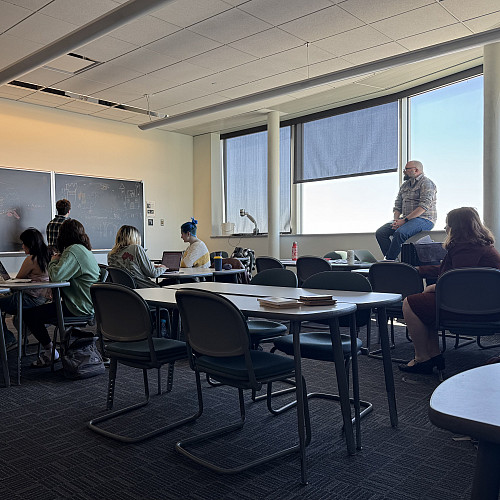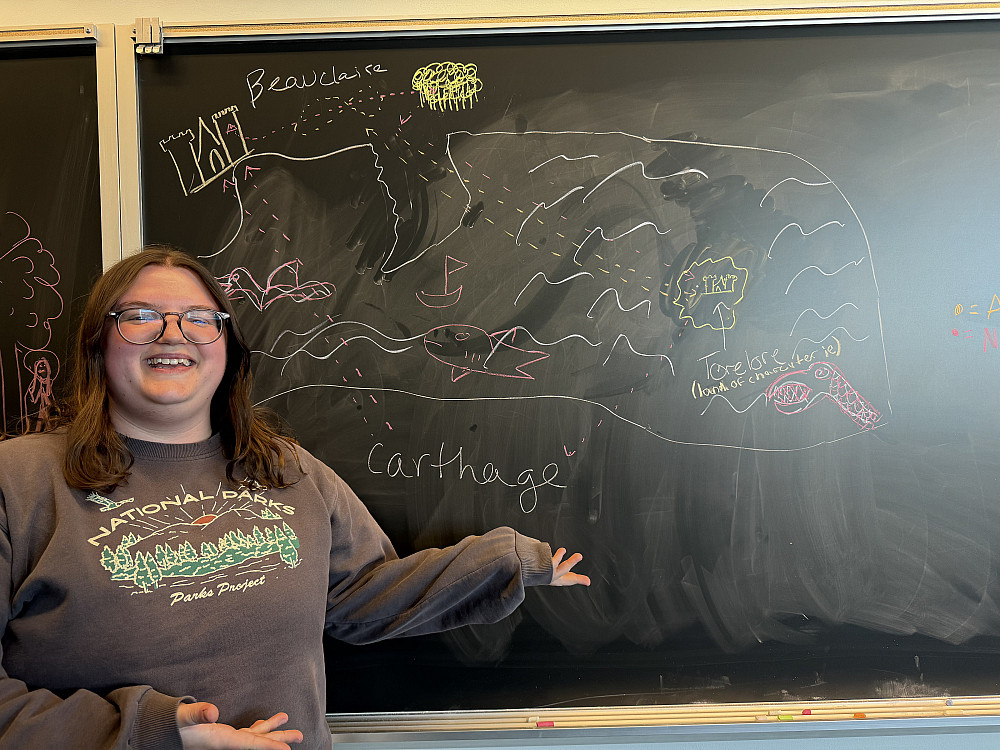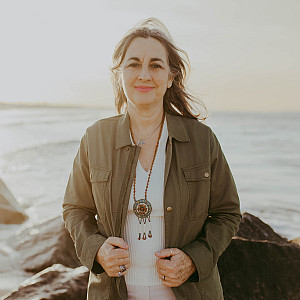Disrupting the binary in medieval lit
In Joseph Derosier’s “Trans Before Trans” course this spring, students contemplate what it meant to perform gender in the Middle Ages and how queer experiences might be identified in medieval literature.

Credit: Grayson Jensen ’25
The term “medieval” tends to conjure to mind kings and queens, knights in shining armor, and fair ladies locked away in towers. Thanks to shows such as Game of Thrones, themes of violence, class struggle, religion, and politics dominate the popular understanding of the Middle Ages. But what about gender?
In his spring course “Trans Before Trans: Premodern Gender in Medieval Lit,” Professor Joseph Derosier and his students contemplate just that: exploring what it meant to perform gender in the Middle Ages and how queer experiences might be identified in medieval literature.
Derosier, who is a professor of French and chair of Medieval Studies, centers his research and teaching on “unlearning the Middle Ages” and the negative stereotypes that inform the way we engage with the world around us. In grad school, he planned to study twentieth- and mid-century queer literature, but since pivoting to medieval studies, he says, “this has been a dream of mine, to fuse my interest in queer and trans theory with medieval studies.”

Derosier taught a similar class in Fall 2023 that explored medieval and modern interpretations of gender around Joan of Arc, a course he taught in French. History and environmental justice major Rosa Coit ’25 was a student in that class and has taken other French courses with Derosier over the years. “Trans Before Trans” is their first course with Derosier taught in English.
“Talking about the topic in another language is a way of learning that I really like,” Coit explains. “I can contextualize the language and make sure I understand how to say what I want to say.” Approaching medieval studies in English also allows class discussions to go deeper and explore more nuanced questions.
“Teaching in English and teaching things in translation allows me to reach a broader group of students… and make connections across campus,” says Derosier. The class is cross-listed under English, Critical Identity Studies, and French, and Derosier offers bilingual editions of translated texts when possible so that students have the option to challenge themselves and explore readings in the original Old (and modern) French, Latin, or Middle English.

Credit: Grayson Jensen ’25
He also accommodates a variety of learning styles by assigning podcast episodes, looking at images from medieval bestiaries, and accepting creative projects. “Doing things that are multi–media allows [space for] students from different disciplines — so if they have a background in art or in another field, they can bring that perspective in,” Derosier says. In class discussions, students have made connections to a broad range of studies including psychology, biology, and anthropology.
Coit hopes to take away from the course a deeper understanding of how perceptions of gender have evolved across time. “The medieval period is where we get the origins of our culture and our society,” they say. “It’s important to be engaging with where our own society comes from and why we believe the things that we believe.”
Derosier finds encouragement in the willingness of Beloit students to take on challenging texts and embark on an academic journey together. “I’m finding a lot of joy in teaching this,” he says. “I’m finding a lot of joy in the way that we’re creating a classroom community.”


